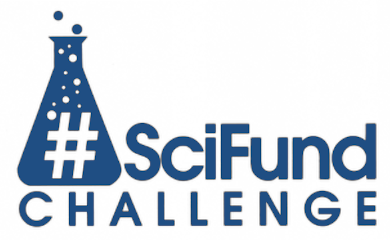https://experiment.com/projects/how-does-technology-affect-our-memory
Each day we are going to highlight one of the amazing research projects seeking funding in Round 4 of the #Scifund Challenge. Today we speak with Farah Naaz and Jason Finley about their project on the impact of technology on our memory.
Tell us about yourself, where you are from, and where you see yourself going.
Jason: I am a cognitive psychologist interested in how technology and the human mind shape each other. The way I see it, human beings have two defining qualities: the ability to reflect on and direct our own thinking (metacognition), and the propensity to craft our environment to augment our thinking (offloading). My research interests concern the limitations of human cognition, particularly learning and memory, and how those can be overcome by improving metacognition and/or by offloading aspects of cognition onto the environment.
Farah: I am a cognitive psychologist interested in studying Learning and Memory. My graduate work was on studying computer-based learning programs for neuroanatomy. This research dealt specifically on how we can use existing technology to make learning neuroanatomy easier. During my postdoc I got some exposure to fMRI research and studying neural correlates of memory. I hope in the future I would be able to continue my work on learning through both basic and applied research.
How did you get involved in your research project?
Jason: I have always taken meticulous notes, and I routinely write my daily to-do list on the back of my hand (yes, even though I now have an iPhone). These actions seem like natural extensions of my memory and thinking. Among philosophers of mind, the “extended mind” hypothesis (Clark & Chalmers, 1998) holds that cognitive operations should be understood as hybrid processes, taking place both within and beyond the human central nervous system. But very little psychology research has addressed the external memory aids we use all the time. I found inspiration in one exception: earlier research done by Wolfgang Schönpflug in the 1980s.
Farah: Jason led a discussion on this topic in a lab meeting. While Jason seemed extremely excited about what we can gain from these technological advances, I was concerned about at what cost are these advances helping our memory. Our lively disagreement made us realize we need empirical evidence for these questions, not just hunches and intuitions.
We realized that not only do our interests overlap, but our ideas and viewpoints complement each other. Good-spirited disagreement is a fun and powerful source of scientific creativity!
Why is your research important to you? Why should others fund it?
We are increasingly merging with our technology; essentially we are heading towards becoming cyborgs (we hope!). Although the idea of having a life free of the bounds and limits of our mortal body is fascinating, it is important to understand the relative strengths and weaknesses of biological and machine memory. If we can create a world where every memory is backed-up on an external hard drive, all of us might be as good as super-computers. But what would happen if the system crashes? Coming back to the present, even now we do not understand what role technology is playing in our lives. This area of research is largely unexplored and we hope to contribute significantly in this field.
Why did you decide to participate in the SciFund Challenge?
In general, people in our stage of career (postdocs) are trying to be independent researcher and find their own source of funding. The SciFund challenge was an opportunity to seek the relatively small amount of funding we need, and to bring our daring new research ideas to the general public and let them decide if this research is worth doing. We look forward to keeping our backers updated throughout the research process.
Tell us something random. Something funny. Something borrowed. Something blue.
The day you stop learning is the day you die!
You can find their project here.



1 comment on “#Scifund Challenge Round 4 with Farah Naaz and Jason Finley”Add yours →
Comments are closed. You can not add new comments.